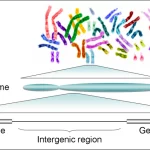
Step-by-Step Manual: Will a Master’s in Bioinformatics Help in Getting a Job?
December 28, 2024This guide aims to help you evaluate whether pursuing a Master’s in Bioinformatics (MSc) will benefit your career prospects, especially in the bioinformatics industry. It also provides actionable steps, relevant scripts, and advice to enhance your journey.
1. Understand the Value of an MSc in Bioinformatics
A Master’s degree:
- Enhances Career Prospects: Provides a more comprehensive understanding of bioinformatics tools, algorithms, and their applications, making you eligible for advanced roles.
- Increases Earning Potential: Studies indicate MSc holders earn up to 23% more than BSc holders.
- Improves Job Eligibility: Preferred for roles in research, pharmaceutical companies, biotechnology, and data-intensive industries.
2. Evaluate Your Career Goals
- Industry vs. Academia:
- If aiming for industry roles, an MSc is often sufficient. It focuses on applied bioinformatics.
- For academia, a PhD is essential for high-level research and teaching.
- Location Preference:
- UK MSc programs are typically shorter (1 year) and well-suited for European job markets.
- US MSc programs often include internships and extensive industry connections.
3. Skills to Build During MSc
Focus on these essential skills during your MSc:
- Programming: Proficiency in Python, Perl, R, and Unix/Linux scripting.
- Data Analysis: Genomics, proteomics, transcriptomics, and machine learning techniques.
- Domain Knowledge: Understanding biological systems, databases (NCBI, UniProt), and tools (BLAST, Clustal).
- Soft Skills: Team collaboration, communication, and project management.
4. Alternative Pathways
If uncertain about committing to an MSc immediately:
- Gain Experience in IT/Programming:
- Use this time to learn bioinformatics programming languages and tools.
- Example: Work on open-source bioinformatics projects on GitHub.
- Pursue Online Certifications:
- Platforms like Coursera and edX offer bioinformatics courses.
- Apply for Research Assistant Roles:
- Work in labs to gain exposure and decide on long-term goals.
5. Salary Expectations
- MSc graduates can expect starting salaries of £25,000–£35,000 in the UK or $50,000–$80,000 in the US, depending on the industry and location.
6. Boosting Job Prospects During MSc
- Internships and Research Projects:
- Participate in internships or work on industry collaborations during your MSc.
- Choose projects that involve high-demand skills like NGS data analysis or AI applications.
- Networking:
- Attend bioinformatics conferences, webinars, and local meetups to connect with industry professionals.
- Portfolio Building:
- Create a GitHub repository showcasing your bioinformatics scripts and analyses.
7. Making the Final Decision
- Ask Yourself:
- Are you passionate about bioinformatics and willing to invest in advanced training?
- Do you enjoy problem-solving in biology through computational methods?
- Consult Industry Experts:
- Join bioinformatics forums (e.g., BioStars, ResearchGate) to seek advice.
8. Conclusion
A Master’s in Bioinformatics can significantly enhance your career if:
- You’re committed to bioinformatics as a field.
- You maximize opportunities for internships, projects, and networking.
- You develop a strong programming and data analysis portfolio.
Use this guide as a roadmap to evaluate and enhance your career prospects in bioinformatics!


















